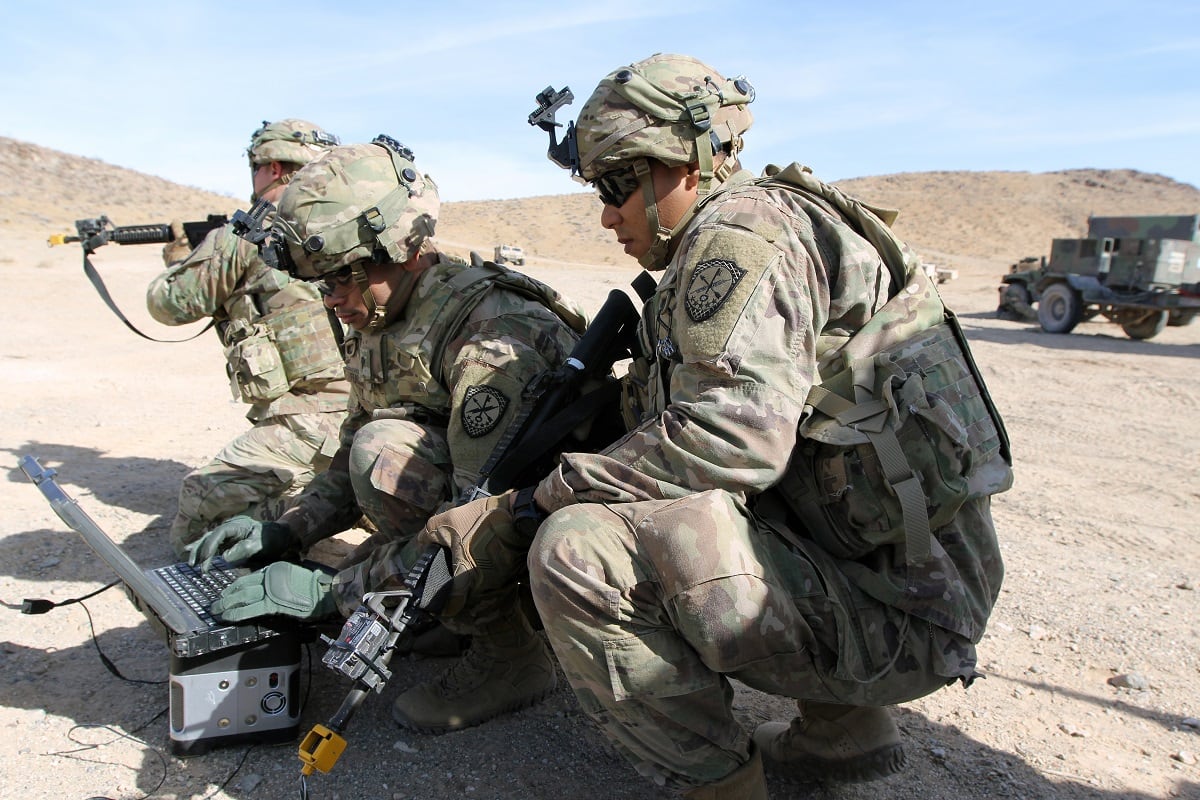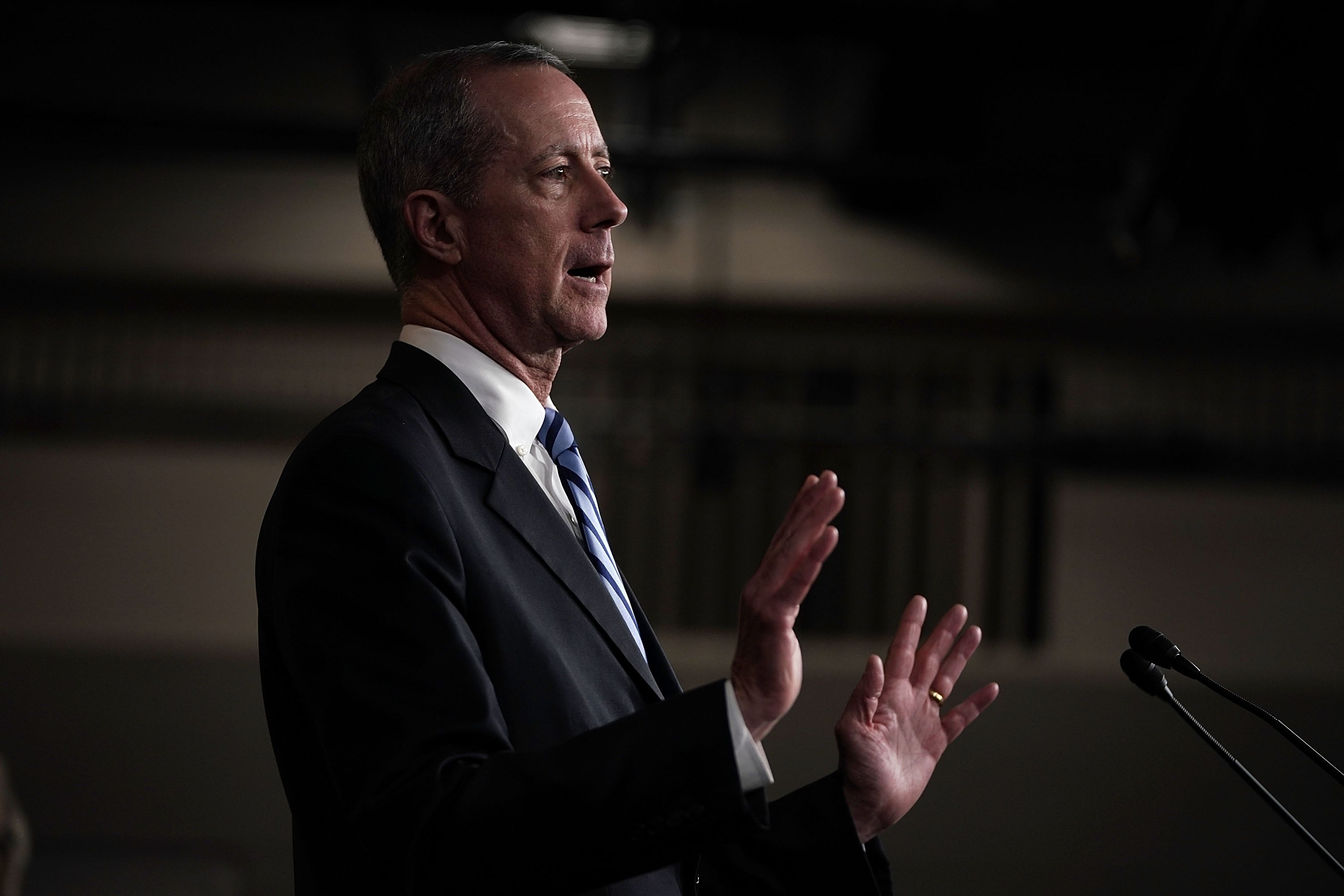WASHINGTON ― The U.S. House of Representatives has launched a new task force to examine how to maintain the Pentagon’s technological edge against Russia and China as well as take on sacred cows along the way, its chairmen said Tuesday.
Led by House Armed Services Committee members Reps. Seth Moulton, D-Mass., and Jim Banks, R-Ind., the bipartisan Future of Defense Task Force has a six-month charter and a broad scope. It’s expected to step-back from the annual budgeting cycle that dominates the committee’s work to examine long-term national security strategy and help the Pentagon become more innovative, technologically speaking.
The new group has a charter to “review U.S. defense assets and capabilities and assess the state of the national security innovation base to meet emerging threats and ensure long-term strategic overmatch of competitors.” To that end, it’s expected to hold a series of hearings and closed-door briefings, and eventually issue a report with recommendations, even if they’re unpopular.
“We’re saying we don’t think enough people are asking the big-picture questions about how we prepare for 30 years from now ― and I think a lot of people at the Pentagon will agree with that,” Moulton said, adding that America must match China’s efforts at leap-ahead technologies and long-term planning. He and Banks held a roundtable with reporters Tuesday.
“There’s no question that the model has changed, and innovation is no longer coming from big government contracts,” Moulton said. “The United States has to be smarter about adapting to this world. There’s a joke inside the Pentagon: If only the Chinese would hack our acquisition rules and copy them, we’d be more competitive. That’s a reality.”
RELATED

The task force’s first hearing is set for Oct. 29 with the former Obama-era undersecretary of defense for policy, Michele Flournoy, and former Sen. Jim Talent, R-Mo.
Additional hearings could feature defense industry and “outside-of-the-box” witnesses, Banks and Moulton said. Potential topics for scrutiny include disruptive technologies like artificial intelligence, biotechnology, a fifth-generation network known as 5G, hypersonic weapons and the Pentagon’s existing innovation organizations, such as the Defense Innovation Unit.
Formation of the task force comes as the Pentagon eyes the technological advances and works to absorb Congress’ latest round of acquisitions reforms. Senior leaders at the Pentagon are fundamentally rethinking modernization priorities amid fears that Russia and China will surpass the U.S. technologically.
A year after the U.S. Army’s began holding its “night court” to weed out inessential programs, Marine Commandant Gen. David Berger issued planning guidance in July to reshape the force and shrinking it if necessary to pay for modernization. The Pentagon has launched its own a departmentwide night court.
By Moulton’s reckoning, the Pentagon has not truly embraced the authorities granted by Congress. “When you talk about creating a culture of innovating, it’s not just about replacing weapons systems; it’s how do we get the Pentagon to continually be asking [tough] questions themselves," he said.
The task force’s members include several new congressional lawmakers who have practical national security experience and few senior HASC members (Banks and Moulton are recent military veterans). The two chairmen said they sought lawmakers willing to ask tough questions.
RELATED

Among the other members are Rep. Chrissy Houlahan, D-Pa., a former Air Force officer who studied technology and policy at the Massachusetts Institute of Technology; as well as Reps. Elissa Slotkin, D-Mich., and Michael Waltz, R-Fla., who have served in senior Pentagon policy positions.
Both Moulton and Banks said the idea is for younger members to ask challenging questions and energize the conversation.
“The task force’s work will complete in six months, but that doesn’t mean that Seth and I’s work ends at that point,” Banks said. “We’ll be here for a long time, and our work on the [annual defense policy bill] happens on a daily basis. This will set a platform for that work."
HASC members Reps. Susan Davis, D-Calif., Scott DesJarlais, R-Tenn., and Paul Mitchell, R-Mich., have also agreed to serve on the task force.
Joe Gould was the senior Pentagon reporter for Defense News, covering the intersection of national security policy, politics and the defense industry. He had previously served as Congress reporter.







